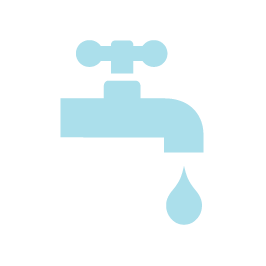 Strategies for Rural Development in Areas with Limited Public Infrastructure: Alternative Septic Systems
Strategies for Rural Development in Areas with Limited Public Infrastructure: Alternative Septic Systems
Genl Management - Alternative Wastewater
Communities have many alternatives to consider for wastewater collection and treatment. The available options include onsite, clustered, and decentralized septic systems.
- Onsite systems treat wastewater generated by a single home or business. The wastewater is piped into a septic system, treated underground, and returned to the environment within the property boundaries of the individual home or business.
- Clustered (also known as multi-user, community, or shared) systems are wastewater treatment systems that serve multiple homes or businesses within close enough proximity to jointly collect and dispose of their wastewater. Usually it involves an individual onsite septic tank for each property owner, with all septic tanks connected to one or more common disposal fields, also known as leach fields. The disposal field(s) may be located on one of the private property lots, on public property, or on land that is held in common by the homeowners association or other entity that manages the system. According to Maine law, clustered systems serving three or more properties MUST have a single, independent, legally established entity that owns and manages all components of the system, including the individual septic tanks and lines on each property, with deeded right of access to these components at any time.
- Centralized systems usually feature multiple properties connected to a public sewer main line (typically gravity feed, with pump stations as needed) that flows into a large central treatment plant, where the wastewater is treated to meet human health and safety standards and remove environmental pollutants before it is discharged to surface waters. Centralized systems are usually constructed only in very high-density areas, due to the high cost of the associated infrastructure.
- Decentralized systems are actually quite centralized, in the sense that they have a central coordinated administration or management structure. What makes them “decentralized” is that at least a portion of the wastewater in the system will be collected and treated in the soils, rather than at the treatment plant. These systems may contain centralized systems, clustered systems, and individual onsite systems, usually depending on which alternative is the best solution for each property in the larger decentralized system. Decentralized systems “…can protect public health and the environment, typically have lower capital and maintenance costs for low-density communities, are appropriate for varying site conditions, and are suitable for ecologically sensitive areas when adequately managed…” (U.S. Environmental Protection Agency’s Response to Congress, 1997).
A comprehensive decentralized wastewater management program is comprised of activities within three functional categories: program planning and administration, treatment system installation and operational oversight, and compliance assistance and assurance. Table 1 indicates the program elements within each category:
|
Category |
Management Program Elements |
|
Program planning and administration |
Public education and participation, planning, establishment of performance standards, financial assistance and funding, administration (record-keeping, inventories, and reporting) |
|
Treatment system installation and operational oversight |
Site evaluations, design approvals, construction or installation inspection, system operations and maintenance, technical assistance, septage disposal planning and contracting |
|
Compliance assistance and assurance |
Training, licensing, and certification of service providers, septic tank inspections and monitoring, corrective actions and possibly legal enforcement to ensure full compliance |
TABLE 1: Elements of a Decentralized Wastewater Management Program
Policy considerations for decentralized system planners include the environmental sensitivity of water resources in the community, potential public health risks, soil characteristics and site conditions in the management area that may determine both the required size of leach fields and the need for additional pre-treatment technologies, and the desired land uses and densities within the management area.
Related Work Plan Components
- Climate Change and Infrastructure Resilience
- Modernizing Communications/Electric Utility Infrastructure
Workgroup Contacts
In Aroostook County: Jay Kamm, Ken Murchison, Joella Theriault
In Washington County: Judy East

Share this content: